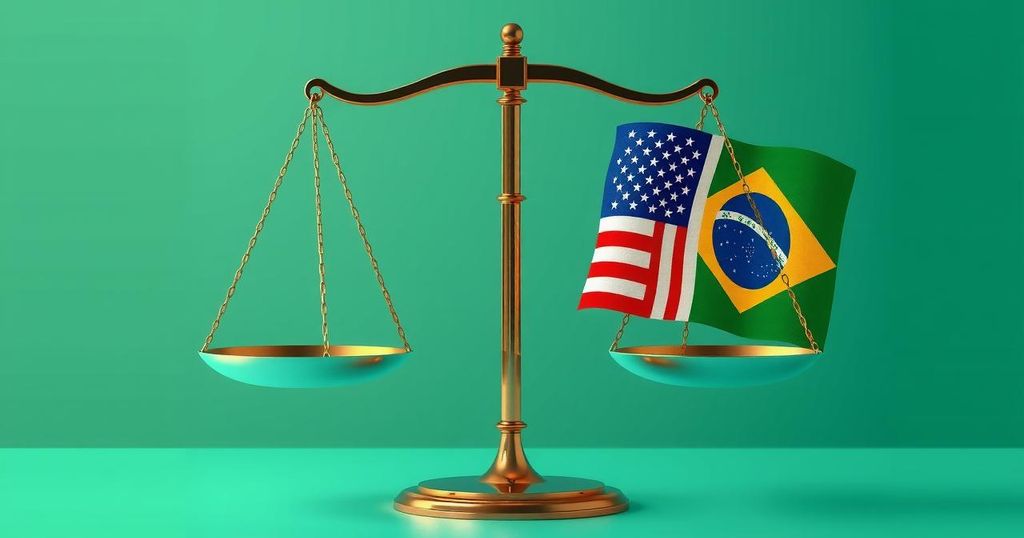Trump Announces 50 Percent Tariff on Brazilian Goods Starting August 2025

- President Trump announced a 50 percent tariff on Brazilian goods.
- The new tariff will start on August 1, 2025, dramatically increasing from 10 percent.
- The tariff is seen as a reaction to Brazil’s treatment of former President Bolsonaro.
- Trump’s letter highlights concerns over Brazil’s censorship of U.S. social media platforms.
- R-CALF USA praised the tariff, viewing it as beneficial for the U.S. cattle industry.
Trump’s Tariff Aimed at Brazil’s Political Actions
President Donald Trump has announced a sweeping 50 percent tariff on Brazilian goods, effective August 1, 2025. This announcement comes as part of a heated response against the Brazilian government’s actions towards former President Jair Bolsonaro. Trump’s discontent is further expressed in a correspondence with Brazilian President, indicating that Brazil’s perceived hostility toward democratic processes and free speech rights poses a significant concern for the United States.
Economic Implications of the Tariff Increase
In his letter, Trump criticized various Brazilian judiciary actions, particularly the Supreme Court’s recent censorial decisions against U.S. social media platforms. Such maneuvers, he argued, could lead to hefty fines for those companies, which compromises American free speech rights abroad. This tariff is notably a drastic surge from the previous 10 percent duty imposed on Brazilian imports earlier this year, illustrating a notable shift in economic strategy towards South America.
Reactions and Possible Challenges to Tariffs
The move is seen as a direct response to Brazil’s handling of Bolsonaro and perceived injustices against American companies. Critics of the tariffs often label them as extreme and an unusual tactic to meddle in another country’s political affairs. However, supporters like Wilbur Ross, former Commerce Secretary, maintain that such tariffs are part of Trump’s consistent approach to deal with international matters, likening them to previous actions concerning fentanyl. R-CALF USA has also expressed support, asserting that the tariff is a step towards safeguarding the U.S. cattle industry and preventing disruption in the domestic food supply chain.
In summary, President Trump’s decision to impose a 50 percent tariff on Brazilian goods marks a significant escalation in trade relations, motivated by political grievances and economic concerns. While supporters claim this is necessary to protect American interests, critics warn of potential repercussions on international relationships. The unfolding situation will likely continue to draw scrutiny and could invite legal challenges in the near future.







